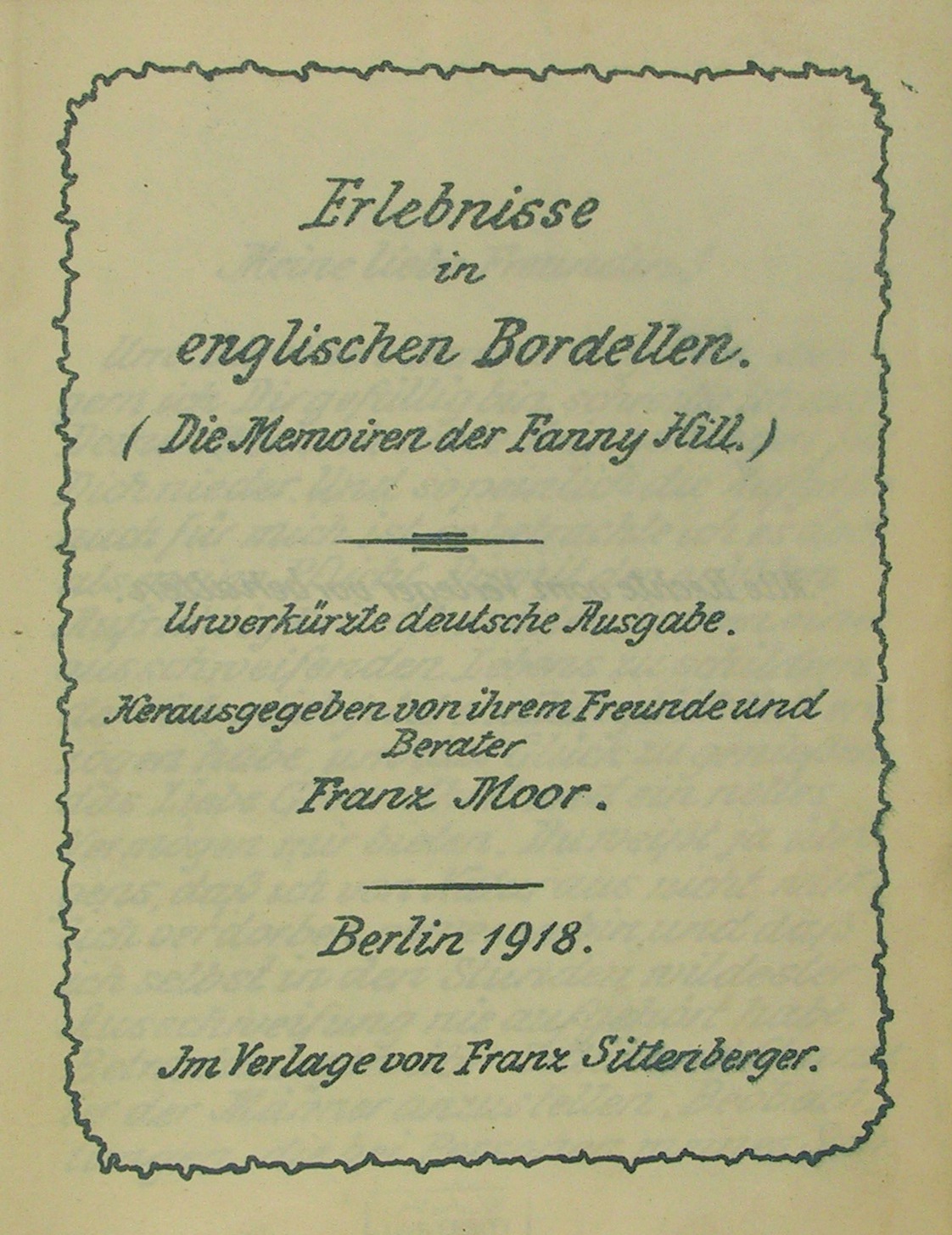Eighteenth-century English erotica for a discerning German wartime audience
The Rare Books Department has just purchased a rather unusual piece of First-World-War printing. John Cleland’s Memoirs of a Woman of Pleasure, or Fanny Hill was one of the first examples of extended prose pornography in the English language, and rapidly landed its author and publisher in court. This unusual German translation, printed in Berlin in 1918, was limited to 100 copies printed for subscribers, “nur für einen wissenschaftlich interessierten Leserkreis” – “exclusively for an academically-interested readership”.
It is printed using a technique called lithography, where an image is transferred onto stone or metal and treated to retain ink, whilst the remaining areas are treated to repel ink. Sheets are then printed directly from the stone or metal. Lithography is particularly good for the reproduction of images or, as in the Cleland, handwritten text. Presumably, retaining the feel of a handwritten memoir added to the clandestine and exclusive appeal of the book. The printer, Franz Sittenberger, appears to be otherwise unknown, and it seems likely he is fictitious.
This acquisition fits well with other CUL collections. As a rather unusual example of surreptitious wartime printing, it sits happily alongside the Library’s printed collections relating to the 1914-1919 war, whilst as a limited-edition piece of lithographic printing it supplements our exisiting printing history collections and the Waddleton Collection.


